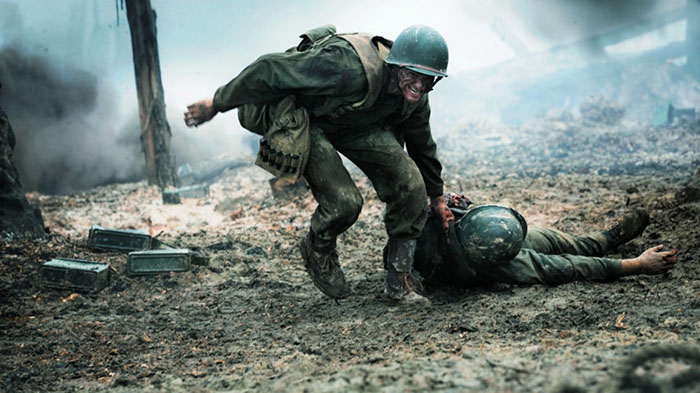Fausto Gomez OP
When one speaks of war from an ethical and Christian perspective, he or she will most probably think of “the Just War Theory.” In the past, and up to the twentieth century, wars seemed to be inevitable and the application of the Just War Theory an ethical demand – or, perhaps, an excuse? – to go to war and to defend wars.
After the September 11, 2001 terrorist attacks against the Twin Towers in New York and the Pentagon in Washington D.C., the Just War Theory was “resurrected” again. President George W. Bush and other world leaders, including some leaders from different religious affiliations, used the Just War Theory to justify the war against terrorist groups. May we speak today of a just war?
WARS AND THE “JUST WAR”
War is understood as an armed conflict between armies of enemy States. In the current context, war is also understood as an armed conflict between a State – or many States – and organized social groups or organizations similar to States, for instance terrorist groups.
There are different kinds of war. For our purpose, we point out two distinct categories: we speak of offensive war (unprovoked war against another State), preventive war (going to war to prevent the threat of war from another State) and defensive war (war against an unjust aggressor). Moreover, and considering the weapons of destruction used, we talk today of nuclear, bacteriological or chemical wars.
The expression “just war” was coined by Aristotle and the Greek philosophers. The Just War Theory was proposed and defended by the two great theologians St Augustine and St Thomas Aquinas. The classical explanation is found in St Thomas’ Summa Theologiae II-II, question 40.
The Angelic Doctor asked himself: Is it always a sin to wage war?Generally, it is immoral and unchristian to wage war: it is a vice against charity (and therefore radically against justice), which is peaceful. How about in some exceptional cases? Exceptionally, war can be licit – ethical and justifiable – if it fulfills three rigorous conditions: it is called by public authority, there is a just cause, and the intention is right, that is, for the sake of justice and peace.
The most difficult condition to carry out is the second: going to war for a just cause. A just cause requires the fulfillment of four strict rules: (1) The presence of grave injustice obstinately pursued; (2) The need to make recourse to war to obtain justice; (3) Proportion between the gravity of the injustice and the calamities to ensue from the war (the principle of “double effect” and “the lesser evil”); (4) A realistic probability of victory.
Obviously, St. Thomas’ doctrine of the just war, within the treatise of charity not justice, is ordered to avoid wars. Why? Because it is almost impossible to fulfill all conditions ad bellum and in bello. St Augustine says that “it is a higher glory to procure or maintain peace by peace, not by war.”
MAGISTERIUM OF THE CHURCH
Regarding other doctrinal themes, for instance the death penalty, there is harmonious development of doctrine concerning the doctrine of the just war. The Second Vatican Council (1962-1965) closes the door a little more to the possibility of a just war in the context of nuclear weapons and the arms race: “War today must be evaluated with an entirely new attitude”; “It is our clear duty to strain every muscle as we work for the time when all wars can be completely outlawed by international consent.”Vatican II continues to speak of the right – and duty – of legitimate defensive war as a last resort (cf. GS, 79, 80 and 82; cf. CCC, 2307-2317). (But some ask: why “a last resort”? How about trying peace again?)
In his encyclical Pacem in Terris, Pope John XXIII is strongly against war in the new context of nuclear weapons: “In this age which boasts of an atomic power, it no longer makes sense to maintain that war is a fit instrument with which to repair the violation of justice.” From the podium of the United Nations in New York, Pope Paul VI (October 4, 1965) cried out “No more war! War never again! Peace, it is peace which must guide the destinies of peoples and all mankind.”
In his Message for the 1982 World Day of Peace, Pope John Paul II spoke of war in general and of defensive war in particular. The Polish Pope said that Christians strive “to resist and prevent every form of warfare,” for war is “the most barbarous and least effective way of resolving conflicts.” Certainly, “there is a right to defend oneself – personally and collectively – against terrorism. This right, as always, must be exercised with respect for moral and legal limits in the choice of ends and means.”
Pope Francis strongly condemns wars as inhuman and un-Christian: “Every war leaves our world worse than it was before. War is a failure of politics and of humanity, a shameful capitulation, a stinging defeat before the forces of evil”; “the injustice of collateral damage.” In the new context, “it is very difficult nowadays to invoke the rational criteria elaborated in earlier centuries to speak of the possibility of a ‘just war’.” He maintains –with many other Christians – that the concept of “just war” can no longer be upheld today (Fratelli Tutti, 258, 261).
From Vatican II up to Pope Francis, the arms race is firmly condemned. Pope Paul VI deplored deterrence for it does not remove but aggravates the risks of war, and also because it leaves the poor poorer: every exhausting armaments race is an intolerable scandal (PP. 53; cf. GS, 81; PT, 112; FT, 262). It used to be said: Si vis pacem para bellum. Today it is said instead: Si vis pacem, para pacem: If you want peace, prepare for peace.Jesus tells us: Blessed are the peacemakers(Mt 5:9).


 Follow
Follow


